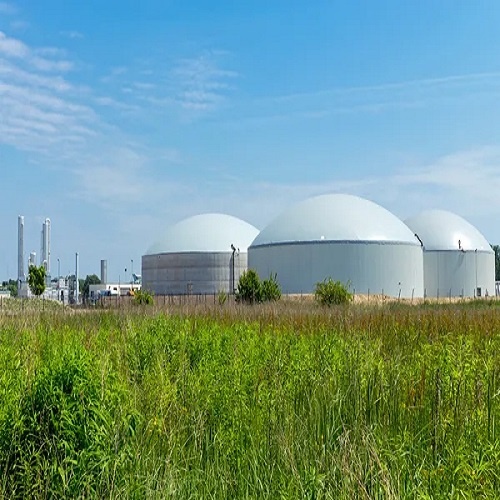New Delhi : In a move towards sustainable energy practices, the Ministry of Petroleum and Natural Gas has declared mandatory blending of Compressed Bio-Gas (CBG) in the CNG (Transport) and PNG (Domestic) segments of the City Gas Distribution (CGD) sector.
According to a press release by the Ministry of Petroleum and Natural Gas, the introduction of the CBG Blending Obligation (CBO) is set to revolutionize the usage and adoption of CBG, marking a significant step towards import substitution for Liquefied Natural Gas (LNG) and achieving a circular economy.
Hardeep Singh Puri, the Minister of Petroleum and Natural Gas and Housing and Urban Affairs, emphasized the pivotal role of CBO in stimulating CBG demand, saving Forex, and contributing to achieving net-zero emissions.
The National Biofuels Coordination Committee (NBCC), chaired by the Union Petroleum Minister, anticipates considerable investment of approximately Rs 37,500 crores and the establishment of 750 CBG projects by the fiscal year 2028-29.
The CBO will initially be voluntary until the fiscal year 2024-2025, with mandatory blending obligations commencing from the fiscal year 2025-26. The initial blending percentages for CNG/PNG consumption are set at 1 per cent, 3 per cent, and 4 per cent for fiscal years 2025-26, 2026-27, and 2027-28, respectively, read the press release.
Starting from fiscal year 2028-29, the CBO will be fixed at 5 per cent.
The Central Repository Body (CRB) will oversee and implement the blending mandate based on operational guidelines approved by the Minister for PNG. This initiative not only promotes environmental sustainability but also has the potential to transform the energy landscape by reducing dependence on conventional fuels, read the press release.
Additionally, discussions were held to promote the production of ethanol from maize. Collaboration with the Department of Agriculture and the Department of Food and Public Distribution (DFPD) aims to establish maize as a prominent feedstock in the coming years.
Efforts are underway to develop high-starch-yielding varieties, improve the quality of maize DDGS (Dried Distillers Grain Solids), and expedite the registration of new seed varieties with high starch content. Training programs for distillers in partnership with seed companies have also been initiated.
In a parallel announcement, the committee set initial indicative blending percentage targets for Sustainable Aviation Fuel (SAF/Bio-ATF). These targets align with the country’s commitment to biofuel promotion, read the press release.
The approved targets include a 1 per cent SAF indicative blending target for international flights in 2027, escalating to a 2 per cent SAF blending target in 2028 for international flights.
These targets signify a strategic move towards greener aviation practices, reflecting India’s commitment to sustainable and eco-friendly air travel.
India aims to add 500 GW of clean energy to its energy output by 2030, the renewable gas revolution is also stepping up a green roadmap for the country. (ANI)
(With inputs from ANI)












